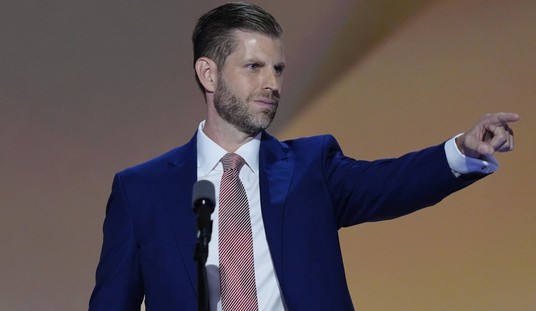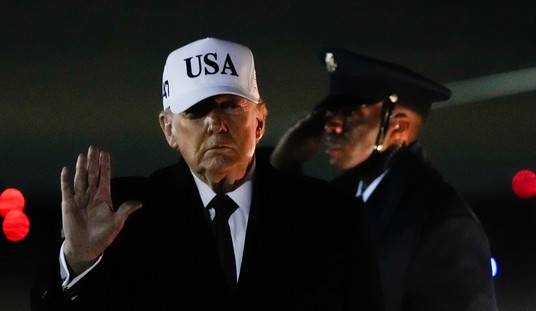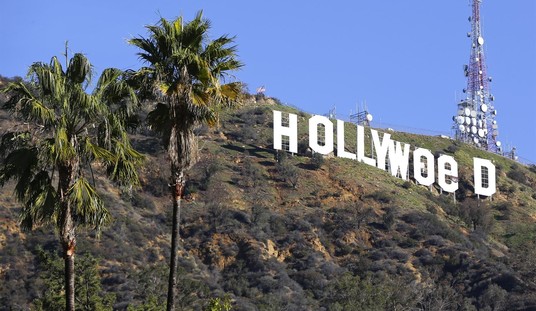Pseudonyms are a writer’s dilemma, a version of Adam’s task. The reasons for using a nom de plume can be legitimate or jokey or desperate, though there’s always an element of deceit involved. It means somebody doesn’t want it known just who wrote the book, article, script, blog or mash note. The Writers Guild (the screenwriters organization) has rules governing their use. I have a couple of pseudonyms on file there.
In the 1970s, when movies made for television were just being established, I wrote a few for the ABC network. They were 90 minutes long and had as many commercials as the network could sell. In the trade they were called ABC-90s. They weren’t much, but they sold a lot of toothpaste. One of my mine, Promise Him Anything, was so dreadful that when I saw a late cut of the thing I wanted my name off.
The dreariness surely had something to do with the script, but the chipper lad who directed it made what was merely second rate into something worse. I wanted my credit to read, “teleplay by Otto de Fay.” Say it aloud and you’ll get the idea. I thought of it as a public burning.
The name went sailing through the various levels of authority – credits are checked and double-checked for typos or treachery. No one at ABC saw anything objectionable until it landed on the desk of the executive in charge of the production. He laughed and called me and said absolutely not, the picture was bad enough. All we needed, he said, was for a reporter somewhere to get the joke and tee off on us. We settled on O.D. Fay. I at least thought it was funny.
In that case, I wanted to register my disapproval of the movie, though I didn’t care to sacrifice my future residuals, so I worked within the Guild rules. In other cases, writers may want to take unpopular political positions and avoid public criticism or they might be neurotic (they’re writers after all) and afraid of seeing their name in print.
B. Traven (Treasure of the Sierra Madre) made up a name and then made himself so scarce, his true identity and name are debated to this day. Letters to the editor, or responses to this web site often use obviously made up names. O. Henry, Lewis Carroll, Dr. Seuss and Voltaire are other examples.
The most famous American pen name is Mark Twain. Samuel Langhorne Clemens wasn’t ashamed of what he had written, nor did he particularly care if people knew that the name he used was made up. He had tried a few other names before he settled on the one we all know. “Mark Twain” was a term used on the boats on the Mississippi to measure depth. Young Sam not only liked the music of it, he wanted it known that he was a new man now, a man of the mighty river and that there would be no retreat into family, position or the past. He was, in short, an American.
George Eliot was really Mary Ann Evans. She felt, correctly, that even so majestic a book as Middlemarch wouldn’t be accepted if the author was a woman. Dickens, perhaps still uncertain of his literary prospects, called his first book, Sketches by Boz. Closer to home, Dan James wrote Famous All Over Town, a story of a 14-year-old Latino boy in Los Angeles who may have been the first tagger. He went around the city spraying his name on walls. The boy’s name, and the name the author used for his book was Danny Santiago.
An author who grew up with Yiddish, was born Canadian as Solly Bellows. He changed it to the more euphonious name we all recognize, and by the time he got around to the opening line of The Adventures of Augie March – “I am an American, Chicago born…” – the transformation was complete.
JT Leroy is the name attached to several novels, the best known of which is Sarah, a story of an adolescent hustler in the truck stops of West Virginia. He’s sometimes called Cherry Vanilla among other names. He sells himself as a girl to the truckers. He has a tough life and things don’t look promising. Leroy was said to be about twenty when his (or perhaps her – it’s ambiguous) book was published and had lived a hard life that included West Virginia truck stops. He was taken up by some well known people and even made public appearances, though, as I understand it, he didn’t say much.
The film rights to Sarah were sold to a company called Antidote International Films. I can see why. The book is reminiscent of the novels of Jim Thompson (The Killer Inside Me) with a dash of Flannery O’Connor. There’s a good measure of sex, most of it commercial and little of it comforting.
The story of young JT Leroy was irresistible. For a few minutes, he was the latest thing. He was in fact, Laura Albert, a writer who now lives in Brooklyn Heights. Ms. Albert sent a former boyfriend’s half-sister out into the world to play the role of JT.
When the whole undertaking exploded, Ms. Albert found herself in some very hot water. The legal facts of the case (drawn from news reports, mostly the New York Times) are easy to understand too quickly. Ms Albert seems to have been very, very, shy.
It’s an amusing metaphysical and literary game though not to the film company. They had signed on and paid for JT Leroy and that’s who they wanted. The Leroy stunt seems to me to be the sizzle, but the novel – no matter who wrote it – is surely the steak. Still, the producers felt deceived and they went to court.
Ms. Albert was convicted of fraud in a civil case in Federal District Court in Manhattan. She now owes $116,500 and possibly more in legal fees. Perhaps another company will buy the rights to her travails in the world of pseudonyms along with the once again available film rights to Sarah, which still might make a movie. If that happens, she probably ought to enter into those agreements as Laura Albert.
***
Sicko, Michael Moore’s latest effort, is mostly about how hard it can be to use the health insurance you may think you have and how great the health care is in other countries is. Moore isn’t so much a documentary maker as a provocateur or a muckraker in the tradition of old time bare-knuckle reporters for papers like the New York Journal or World, or perhaps he’s the descendant of the pamphleteers who spread their anger and views in broadsheets nailed to fences.
More currently, he’s a cousin to the world of tabloids and blogs that take on serious subjects but who often reduce them to rattle and hum.
Maybe because one the countries Moore approves of is Cuba, his style reminded me of the surely apocryphal story of the artist Fredrick Remington in Cuba for William Randolph Hearst just before the Spanish-American War. Remington sent his boss a wire, “All quiet. There will be no war.” Hearst supposedly wired back, “You furnish the pictures, I’ll furnish the war.” Later, Orson Welles used a version of that story in Citizen Kane.
Sicko begins with examples of the American uninsured – one poor devil who lost the tops of two fingers to a buzz saw says that the emergency room wanted $60,000 to reattach one finger, and $12,000 for the other. He went for the cheaper one and said goodbye to the more expensive digit.
Moore doesn’t ask any of the obvious questions. Did they want cash? Proof of credit? Did he offer to pay them later? What about the doctor or admissions person who laid out those terms? One hardly needs to be a reporter to think of questions that might shed light on this ghastly situation.
The movie soon settles into its most effective part: the tales of middle class people with insurance who were denied services from the big HMOs. The stories are sad and often moving. We hear from former medical and business executives with the HMOs who feel awful about having essentially sentenced people to death by denying their claims. They called most anything expensive “experimental.” They saved their companies a lot of money and were honored and rewarded.
Moore follows a young cancer patient to Canada, where she has an easier time than her experience in the U.S. Later, he goes to Britain, France and finally Cuba finding medical ease that can’t be had in the U.S. It’s in this section that Moore plays the populist clown. Hearing about the advantages of the French system (he interviews a group of Americans who live in France) he expresses wonderment as if he had just dropped in on these people by chance. “How much does that cost?” he asks. “Nothing?! No way!” When he’s not asking these fake questions, he narrates the movie in a more-in-sadness than-anger voice. It’s theatrical but it’s salami.
It’s in Cuba that the movie is most amusing. Moore collects some 9/11 workers who now have terrible respiratory problems and no apparent recourse. He picks up some other damaged people, presumably Americans though that’s not clear, puts together a three boat flotilla, flies the American flag, and sails into Guantanamo Bay.
Moore has a megaphone and he announces that he’d like the same treatment for the damaged emergency workers of 9/11 as the Gitmo prisoners are getting. There’s a little more to it, but you get the idea. Its funny in an absurdist way and I laughed at the sight of citizen Moore trying earnestly to get the military’s attention.
Later, he takes his emergency workers to a Cuban hospital where they get treatment. It’s not clear what happened to the rest of the people he was bringing. There are precious few mentions of the difficulties that these countries have with their health care systems. I don’t mean to suggest that Canada, Britain and France and perhaps Cuba, too don’t have effective systems. It’s that an examination of the situation has to account for the problems as well as the virtues.
Manipulative or not, Michael Moore has tapped into something. This movie is a hit and people are cheering it and him. One reason for that is because our health care system is indeed a mess. The mainstream candidates for the presidency all have or will soon have positions on the subject. There will be differences among the plans of course, but it’s hard to imagine health care being ignored by any likely candidate. For domestic policy, this is a determining issue, more immediate and wide reaching than social security.
Pointing to something that’s broken with the goal of fixing it is in an honorable and valuable tradition. For it to be effective, the person doing the telling has to earn the trust of the viewer or the reader. Wisdom, or at least the illusion of it, is required.
We don’t always get to choose the books or movies that change minds and form public policy. Rachel Carson’s Silent Spring put a stop to the widespread use of DDT. Ralph Nader’s Unsafe at Any Speed, changed the way American cars were regarded and eventually made.
Those books – controversial in their time – seem like models of probity and responsibility next to Sicko. One thing seems clear though, the topic is more important than the treatment and in that, Michael Moore’s instinct has taken him to the hot center of public opinion. The country needs help in this matter and if it’s Michael Moore in all his ham-handed grandstanding who changes America from passive frustration to effective activism, well, we ought to just accept it.
If you want the pleasures of subtlety, try Chekhov.









Join the conversation as a VIP Member